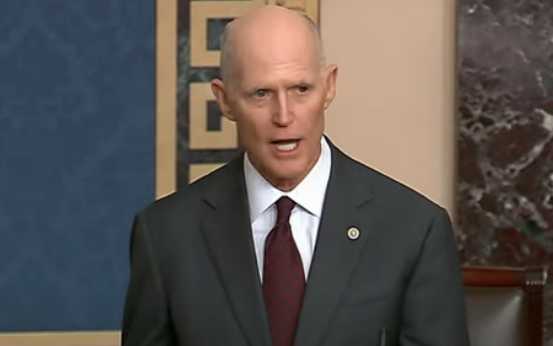“The ultra-wealthy would get hefty handout while families suffer. We can’t let that happen,” said Sen. Martin Heinrich, the chair of the Joint Economic Committee.
An economic analysis of the far-right Project 2025 agenda crafted by at least 140 former Trump administration officials shows that the plan would result in higher taxes on working-class Americans and “corporate welfare” for the rich and large businesses.
Conducted by the Democrats on the Joint Economic Committee (JEC), the new analysis notes that Project 2025’s sprawling “Mandate for Leadership” would establish a “two-rate individual tax system of 15% and 30% that eliminates most deductions, credits, and exclusions.”
Such a system, according to the JEC, “would force many middle-class families to pay thousands of dollars more in tax payments.”
“Together, these changes to tax rates would mean that a family of four earning $90,000 per year would have paid roughly $2,300 more in taxes last year,” the JEC found. “If the Child Tax Credit was also eliminated, this family would have paid roughly $6,300 more. Meanwhile, millionaires would pay a lower top tax rate.”
The analysis also points to Project 2025’s push for a “national sales tax,” a highly regressive proposal endorsed by dozens of Republican lawmakers in the House of Representatives.
A national sales tax would “force working families to pay more at the grocery store, gas pump, and any other place they buy
goods or services,” JEC said Thursday, noting that past GOP proposals “would have hiked the cost of essentials like groceries and housing—usually exempt from state and local sales taxes—by 30%.”
Meanwhile, Project 2025 calls for reducing the U.S. corporate tax rate from 21% to 18%. According toThe Washington Post, GOP presidential nominee Donald Trump’s advisers have discussed slashing the tax rate to as low as 15%, and the president himself has told leading executives and his wealthy campaign donors that he intends to push for additional tax cuts if he wins another four years in the White House.
[perfectpullquote align=”right” bordertop=”false” cite=”” link=”” color=”” class=”” size=””]”It would force Americans to pay more at the grocery store, strip workers of overtime pay, and raise taxes on working families.”[/perfectpullquote]
Sen. Martin Heinrich (D-N.M.), chair of the JEC, said in a statement that “Republicans’ Project 2025 is bad for America,” as “it would force Americans to pay more at the grocery store, strip workers of overtime pay, and raise taxes on working families.”
“The ultra-wealthy would get hefty handout while families suffer,” Heinrich added. “We can’t let that happen.”
The JEC analysis also highlights Project 2025’s proposed assault on worker protections, noting that the far-right plan would make “fewer workers eligible for time-and-a-half overtime pay”; allow “children to work in hazardous occupations such as factories, meatpacking plants, and sawmills”; and gut National Labor Relations Board enforcement.
Other broad, potentially destructive reforms advocated by Project 2025—which is spearheaded by the Heritage Foundation—are eliminating the Federal Reserve’s mandate to pursue full employment and abolishing the Consumer Financial Protection Bureau, long a target of corporate America and their Republican allies in Congress.
Recent polling data indicates that Project 2025 is unpopular with U.S. voters and becomes even more so once they are informed about the far-right initiative’s proposals.
That could explain why Trump has sought to distance himself from Project 2025 in recent weeks, claiming he has “no idea who is behind it” despite the close involvement of a number of prominent figures who served in his administration, including former Office of Management and Budget Director Russ Vought.
An unnamed former senior adviser to Trump toldNew York magazine last month that “it’s totally false he doesn’t know what P25 is.”
“Privately, he is of course talking to Heritage, and [Heritage president] Kevin Roberts has reportedly even met with Trump on P25,” the ex-adviser said.
Common Dream’s work is licensed under a Creative Commons Attribution-Share Alike 3.0 License. Feel free to republish and share widely.
[content id=”79272″]








